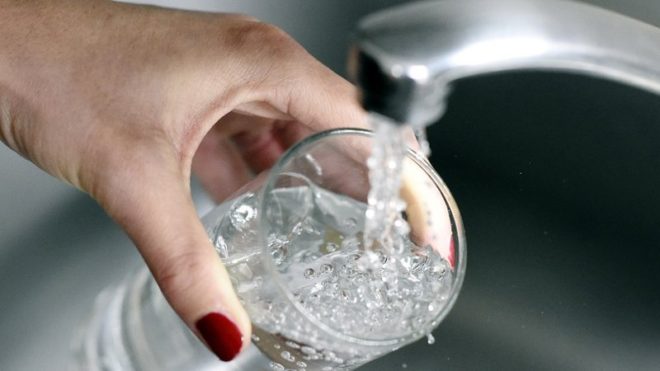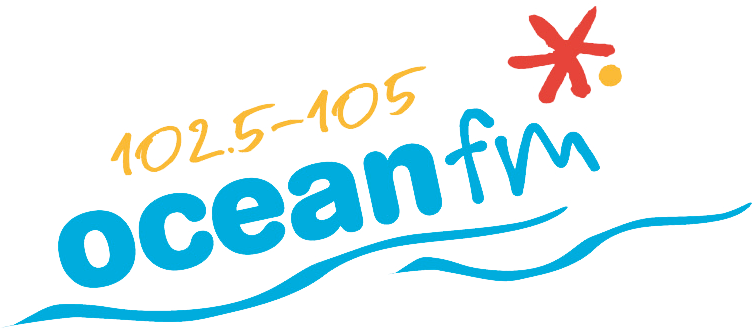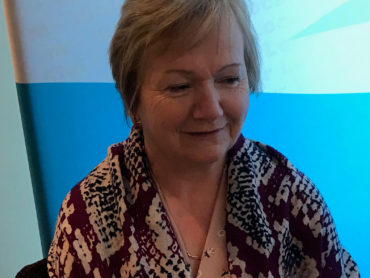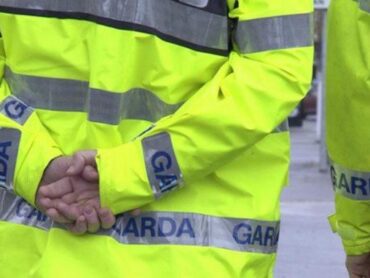
The HSE has confirmed it’s investigating cases of illness as a result of the contamination of the Lough Talt Water Supply.
As a result Irish Water has extended its Boil Water Notice by another four weeks.
In a statement today from Irish Water it’s been confirmed that ‘cases of cryptosporidiosis’ have been reported in the community as a result of the outbreak of cryptosporidium in the water supply.
A boil water notice has been in place on the supply since the start of February.
Irish Water and the HSE have been taking samples from the supply on a weekly basis and there have been no further detections since March 7th which is 10 weeks of clear samples.
But the HSE has informed Irish Water it’s investigating ‘reported cases of cryptosporidiosis in the community’.
While the source of transmission is unclear at this point, in the interest of public health the HSE has advised that the notice continues for another four weeks.
Sampling will continue during this time and all results will be reviewed by the relevant stakeholders.
Irish Water says it’s up to the HSE to give further details on the reported cases.
The boil water notice was put in place on February 5 following a detection of cryptosporidium during routine sampling at the water treatment plant. An increased continuous weekly sampling plan was implemented and five further detections of cryptosporidium were found both at the plant and in the supply network. Following further consultation with the HSE, it was advised that the boil water notice should remain in place until mid-may to coincide with the high risk cryptosporidium season. Continued sampling occurred over a total period of 16 weeks. Zero detections have been recorded since March 7 representing 10 successive weeks of clear sampling through the high risk cryptosporidium season.
The HSE have informed Irish Water they are investigating reported cases of cryptosporidiosis in the community and while the source of transmission is unclear at this point, in the interest of public health the HSE advised that the notice continues for another four weeks. Sampling will continue during this time and all results will be reviewed by the relevant stakeholders.
The level of treatment currently provided at the Lough Talt water treatment plant does not provide adequate protection against cryptosporidium. Irish Water is advising customers that in the absence of a validated cryptosporidium barrier there is a risk of further cryptosporidium detections in the supply.
In 2015 Irish Water proposed to construct a water treatment plant downstream of the existing water treatment plant site but was refused planning permission by Sligo County Council and subsequently on appeal by An Bord Pleanála. The 2015 application was refused permission because An Bord Pleanála could not exclude the possibility that the development, in combination with the abstraction from Lough Talt, would adversely affect the Lough Hoe Special Area of Conservation (SAC) and the River Moy SAC (within which Lough Talt is located). Irish Water is preparing a suitable planning application, under a process known as IROPI (Imperative Reasons of Over-riding Public Interest), for the provision of an emergency water treatment plant to address the absence of an effective crypto barrier, but also to provide mitigation against the formation of Trihalomethanes (THMs).
The Lough Talt supply is currently on the EPA’s Remedial Action List (RAL) for both cryptosporidium and THM risk. The emergency plant is to be built on the existing site and Irish Water is expected to lodge a planning application with Sligo County Council by the end of May. It is imperative that the application is as robust as possible and addresses all questions raised by the previous unsuccessful application.
A validated barrier against cryptosporidium will be provided and the risk of THM formation is significantly reduced at the Lough Talt water treatment plant if the planning application is approved. All options are being investigated including the standard planning process and the emergency IROPI process. However, the long term solution will be the provision of water from an alternative source and this option is also being investigated by Irish Water.
Commenting, Seamus Granahan, Regional Asset Operations Manager from Irish Water said: “Public health is our number one priority and ultimately our aim is to provide compliant and robust water treatment for the 13,000 people who are supplied by the Lough Talt public water supply in the shortest possible time and that is where our attentions are focused.
“This detection of cryptosporidium came to light due to heightened sampling by Irish Water on this scheme. Irish Water is acutely aware that this water supply lacks the necessary barriers and will continue to monitor it closely to ensure public health is safeguarded.”
A map of the scheme is available on the Irish Water and Sligo County Council’s websites.
Irish Water and Sligo County Council sincerely apologise to all customers for any inconvenience caused by this Boil Water Notice.
Water must be boiled for:
· Drinking
· Drinks made with water
· Preparation of salads and similar foods, which are not cooked prior to eating
· Brushing of teeth
· Making of ice – discard ice cubes in fridges and freezers and filtered water in fridges. Make ice from cooled boiled water.
What actions should be taken:
· Use water prepared for drinking when preparing foods that will not be cooked (e.g. washing salads)
· Water can be used for personal hygiene, bathing and flushing of toilets but not for brushing teeth or gargling
· Boil water by bringing to a vigorous, rolling boil (e.g. with an automatic kettle) and allow to cool. Cover and store in a refrigerator or cold place. Water from the hot tap is not safe to drink. Domestic water filters will not render water safe to drink
· Caution should be taken when bathing children to ensure that they do not swallow the bathing water
HSE advice for making up infant formula
Where a Boil Water Notice is in place, you can prepare infant formula from tap water that has been boiled once (rolling boil for 1 minute) and cooled beforehand.
Bottled water can be used to make up infant formula. All bottled water, with the exception of natural mineral water, is regulated to the same standard as drinking water. It is best not to use bottled water labelled as ‘Natural Mineral Water’ as it can have high levels of sodium (salt) and other minerals, although it rarely does. ‘Natural Mineral Water’ can be used if no other water is available, for as short a time as possible, as it is important to keep babies hydrated. If bottled water is used to make up infant formula it should be boiled once (rolling boil for 1 minute), and cooled in the normal way. Ready-to-use formula that does not need added water can also be used.
Anyone suffering from diarrhoea for more than two days should contact their general practitioner and provide a stool sample for testing. They should continue to drink plenty of boiled or bottled water.
Great care should be taken with boiled water to avoid burns and scalds as accidents can easily happen, especially with children.
Irish Water and Sligo County Council regret the inconvenience this boil water notice has had on businesses and residents and would like to thank all customers for their continued co-operation during the period of the notice. Business customers will receive a 40% rebate most likely reflected in their next bill, on the cost of the supply of water to their businesses for the duration of the boil water notice.
Further information and additional advice for customers on the boil water notice is available by calling Irish Water’s 24-hour customer care helpline on 1850 278 278, billing enquiries on 1850 778 778.







